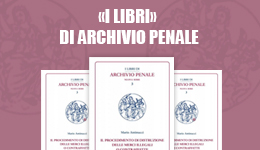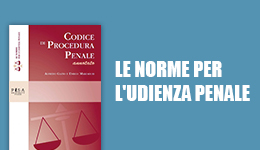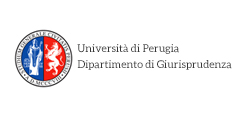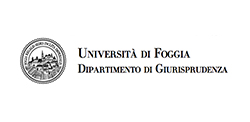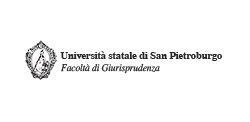L’esercizio dei poteri costituzionali in materia di libertà, sicurezza e giustizia e l’obbligo di lealtà nel rapporto tra gli organi dello Stato
Archivio Penale
© dell'autore 2020
Ricevuto: 22 April 2020
| Accettato: 24 April 2020
| Pubblicato: 25 April 2020
L’intero articolo è disponibile
Riassunto
Premessa la disamina dei principali fattori che hanno comportato la sostanziale riduzione dei poteri del Parlamento e del Governo, allocando su soggetti diversi il compito di fornire l’indirizzo politico indispensabile per garantire la stabilità all’interno del Paese e l’unità nei rapporti con i Paesi esteri e affermata l’esigenza di lealtà nei rapporti tra istituzioni e poteri dello Stato, l’Autore esamina sotto un angolo visuale strettamente giuridico i due provvedimenti emessi dal Giudice per le indagini Preliminari di Agrigento e dalla Corte di cassazione sulla vicenda accaduta nel porto di Lampedusa nella notte tra il 28 e il 29 giugno 2019 e ne critica severamente le motivazioni e le conclusioni in ordine al riconoscimento nel caso concreto di un dovere di soccorso scriminante ai sensi dell’art. 51 c.p., anche in relazione a quanto statuito nelle Convenzioni internazionali che regolano il soccorso in mare e l’individuazione di un porto sicuro per lo sbarco dei migranti.
The exercise of constitutional powers in the matter of freedom, security and justice and the obligation of loyalty in the relationship between the organs of the state
The Author investigates from a legal standpoint the decisions issued by the Judge for preliminary investigations of Agrigento and by the Corte di Cassazione (collectively, the ‘Courts’) in connection to the events occurred in the harbor of Lampedusa on the night between 28 and 29 June 2019. The research reiterates the relevance of the loyalty principle between institutions and vis-a-vis the central government. It also underlines the conceptual premises that have led to the significant curtailment of the powers of the Parliament and of the Government, with the effect to entrust other subjects with the tasks of providing adequate political guidance in view to guarantee stability within the country and unity in relations with third Countries. Against this background, the Author criticizes the reasoning and conclusions reached by the Courts with reference to the finding of a duty to carry out rescue in adherence to Article 51 of the Italian Criminal Code. The Author further disputes the correctness of the findings of the Courts in light of principles stemming from international conventions on maritime search, rescue and assignment of a safe harbor for the disembarkation of migrants.
Percorso di valutazione
Peer reviewed. Certificazione della qualità


